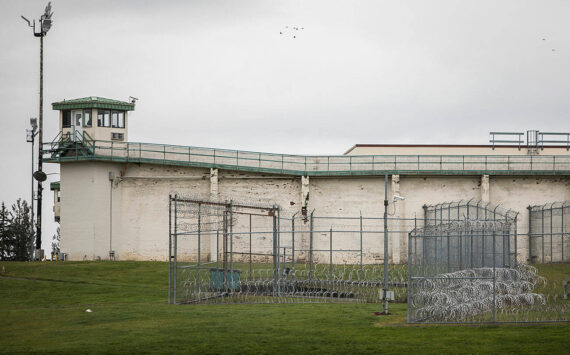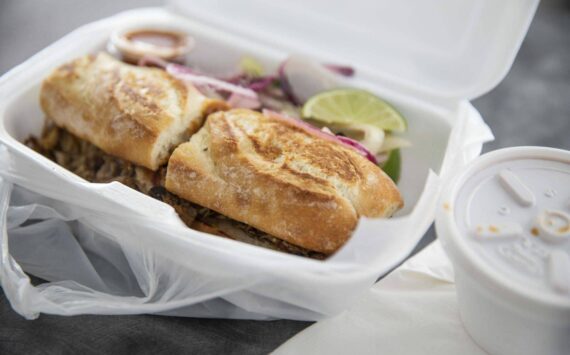Haueter family operated four sham charities, keeping more than $1M from Washington donors for themselves
A King County Superior Court judge ruled that the Haueter family used their four charities as an elaborate, deceptive scheme to solicit donations from Washingtonians for seemingly worthy causes, while pocketing much of the money for themselves. Attorney General Bob Ferguson filed a lawsuit in December 2017 asserting that the Haueters’ charities were a sham that the family used to enrich themselves by more than $1 million.
“Instead of helping cancer patients and vulnerable children, this family took advantage of the generosity of Washingtonians,” said Ferguson. “That is wrong – and illegal.”
The family operated four charities, most recently named Children’s Hunger Relief Aid, Children’s Safety Society, Emergency Relief Network and Search and Rescue Charities. After Ferguson filed his lawsuit, the Haueters dissolved two of these, but continued to operate the remaining two using the same deceptive tactics.
In a motion for partial summary judgment filed in November, Ferguson outlined the family’s deceptive behavior: enriching themselves with charitable donations, failing to give donors the true name and location of the charities they were donating to, exchanging funds between charities with very different missions and providing little, if any, assistance to the needy people they claimed to help.
The court agreed with Ferguson that the Haueter family’s deception violated the Charitable Solicitations Act and the state Consumer Protection Act. As a result of Ferguson’s lawsuit, the court requires the Haueters to dissolve all of their remaining charities.
Today’s ruling confirms that the Haueters violated the law, but the court will decide on any penalties, costs or fees at a later date. The Attorney General’s Office will seek the maximum penalties of $2,000 per violation and costs, fees, restitution and other relief.
Haueters deceived donors with donation solicitations
Roy Bronsin Haueter, his wife, and his children and their spouses operated four charities and a commercial fundraiser. Over many years, the four charities went by 23 official names and 19 “doing-business-as” entities and claimed to benefit several vulnerable groups, including foster children, war widows and cancer patients.
Over the past eight years, the fundraiser exclusively served the four charities, making approximately 15 million calls and disseminating tens of thousands of donation solicitations.
The Haueters would solicit donations from Washingtonians using various deceptive campaigns and outreach. For example, the family used Back to School Helping Hands, a campaign that claimed to provide school supplies to foster children, to solicit for multiple charities with different beneficiaries. On many occasions, the donation request failed to state which charity benefited from the campaign at all.
Solicitations made various claims to encourage donors to give. Children’s Safety Society solicited donations for the “Children Hunger Emergency Fund,” for which its solicitations claimed, “immediate help has been requested” and money would provide “food vouchers” to children. The family’s Children’s Hospital Emergency Fund claimed that donations take “care of basic expenses low income parents incur” when their child experiences a medical emergency.
No matter the charities’ claimed missions, they all, with minor exceptions, provided “charity” in the same way: A small portion of the donations and grants went toward gift cards distributed either to Head Start programs or to low-income children at “shopping sprees.”
The four charities often solicited the same donors multiple times a year under the guise of different charities, without disclosing where the donor’s money actually went. One Sumner resident received eight solicitations using six different names from the Haueters’ four charities in 12 months.
Many Washingtonians donated to the Haueters’ organizations believing their money would go toward one beneficiary, when in fact that money went toward a completely different person in need, or no beneficiary at all.
All four charities falsely claimed that donations would benefit people in the donor’s community.
After donating to Cancer Exam Network (later Children’s Hunger Relief Aid), one donor said, “I remember the caller said that the donation will help local women. As someone battling cancer myself, this seemed to be an important cause to contribute to.”
Deceiving donors into believing their donations would help local people in need and using donations for causes other than the donor intended, as the Haueters did, are violations of the Charitable Solicitations Act and the state Consumer Protection Act.
Money often went to other sham charities, Haueters’ pockets
In addition to using donation solicitations interchangeably, Roy Haueter also exchanged funds among the four organizations. Doing so allowed the Haueters to follow a less stringent reporting process to the Internal Revenue Service. Organizations whose donations are above an annual $200,000 threshold are held to stricter reporting requirements to the IRS.
Moreover, exchanging money among the charities meant a donor could have no guarantee their donation went to the needy people they intended to help.
The charities’ financial documents sometimes claimed the organizations spent up to 99 percent of donations on their charitable programs. In reality, the Haueters’ charities provided little, if any, benefit at all.
For example, the daughter that served as president of the Cancer Exam Network admitted that she was unaware of the charity ever supporting cancer research or uninsured women – the two purported beneficiaries of its donations.
Another of the charities raised money for “Holiday Relief Aid,” claiming it would provide food to the elderly and military families. It never provided aid.
The Attorney General’s investigation, which included a review of tax and other financial records, revealed that the Haueter family was the primary beneficiary of the donations. Between 2011 and 2017, the charities reported that they collected $3.6 million from donors through their deceptive outreach. Out of that money, it appears the family retained around $1.4 million for themselves. Records indicate that most of the remaining funds went toward administrative costs, such as postage and rent for the fundraiser. The Haueters’ claimed their charities spent only 17 percent on direct aid.
“While we do our good works let us not forget that the real solution lies in a world in which charity will have become unnecessary.” – Chinua Achebe, Anthills of the Savannah
According to the nonprofits’ operating agreements, Roy Haueter received 20 percent of the nonprofits’ revenue to perform day-to-day tasks and to produce magazines, which he produced largely by cutting and pasting content from the internet, and has not revised since 2011. If he only received his contracted 20 percent in those six years, he would have taken in over $700,000. Roy’s son, who operated the commercial fundraiser, also received approximately $700,000 over the same six-year period.
After Ferguson filed a lawsuit in December 2017, the Haueter family dissolved Children’s Hunger Relief Aid and Search and Rescue Charities. The two charities still held tens of thousands of dollars in donations and assets. Instead of distributing the money to legitimate organizations that benefited the same groups the Haueters claimed to help, as donors intended, the Haueter family funneled the donations into the remaining two charities.
The Haueter family continued to follow the same deceptive tactics to enrich themselves after Ferguson filed a lawsuit. More information about how individuals can protect themselves from charity scams can be found here – https://www.atg.wa.gov/charities.
– Office of the Attorney General







